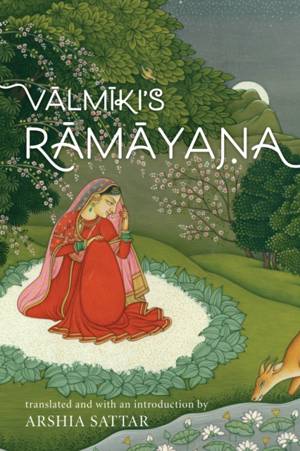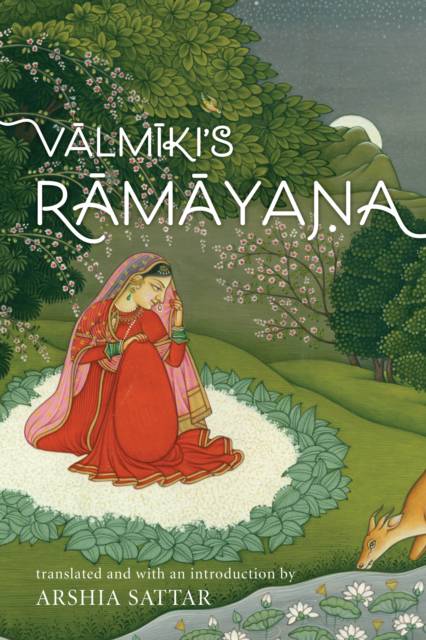
- Afhalen na 1 uur in een winkel met voorraad
- Gratis thuislevering in België vanaf € 30
- Ruim aanbod met 7 miljoen producten
- Afhalen na 1 uur in een winkel met voorraad
- Gratis thuislevering in België vanaf € 30
- Ruim aanbod met 7 miljoen producten
Zoeken
Valmiki's Ramayana
Paperback | Engels
€ 60,45
+ 120 punten
Omschrijving
One of India's greatest epics, the Ramayana pervades the country's moral and cultural consciousness. For generations it has served as a bedtime story for Indian children, while at the same time engaging the interest of philosophers and theologians. Believed to have been composed by Valmiki sometime between the eighth and sixth centuries BCE, the Ramayana tells the tragic and magical story of Rama, the prince of Ayodhya, an incarnation of Lord Visnu, born to rid the earth of the terrible demon Ravana. An idealized heroic tale ending with the inevitable triumph of good over evil, the Ramayana is also an intensely personal story of family relationships, love and loss, duty and honor, of harem intrigue, petty jealousies, and destructive ambitions. All this played out in a universe populated by larger-than-life humans, gods and celestial beings, wondrous animals and terrifying demons. With her magnificent translation and superb introduction, Arshia Sattar has successfully bridged both time and space to bring this ancient classic to modern English readers.
Specificaties
Betrokkenen
- Uitgeverij:
Inhoud
- Aantal bladzijden:
- 562
- Taal:
- Engels
Eigenschappen
- Productcode (EAN):
- 9781538113684
- Verschijningsdatum:
- 20/04/2018
- Uitvoering:
- Paperback
- Formaat:
- Trade paperback (VS)
- Afmetingen:
- 152 mm x 226 mm
- Gewicht:
- 757 g

Alleen bij Standaard Boekhandel
+ 120 punten op je klantenkaart van Standaard Boekhandel
Beoordelingen
We publiceren alleen reviews die voldoen aan de voorwaarden voor reviews. Bekijk onze voorwaarden voor reviews.










